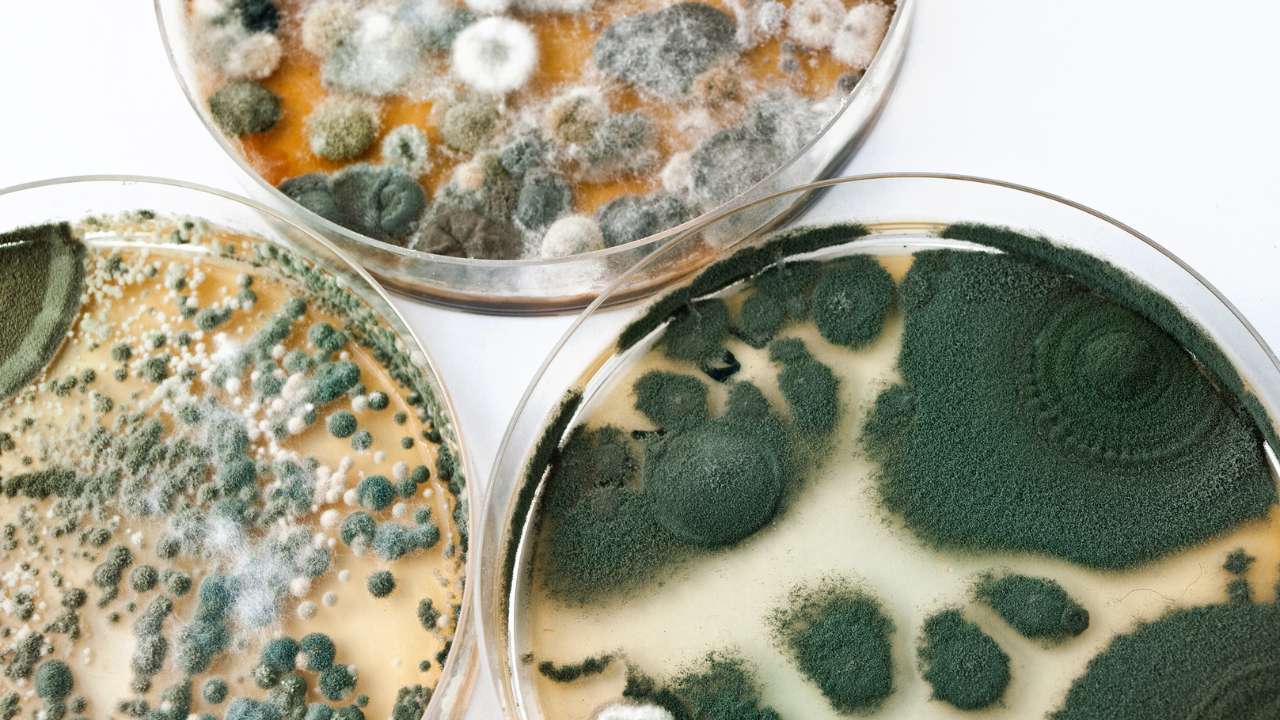Microbiology, the study of the unseen world of bacteria, viruses, fungi, and other microscopic organisms, is a dynamic field with growing relevance in Pakistan. A Bachelor of Science (BS) in Microbiology equips students with the knowledge and skills to explore this fascinating realm and contribute to advancements in healthcare, agriculture, industry, and environmental sustainability.
Table of Contents
This article delves into the scope of a Microbiology degree in Pakistan, providing a comprehensive guide to the curriculum, career paths, and future prospects for aspiring microbiologists.
1. Unveiling the Microscopic World: An Introduction to BS Microbiology in Pakistan
Microbiology offers a unique perspective on life, exploring the intricate workings of organisms often invisible to the naked eye. A BS in Microbiology provides a strong foundation in this field, enabling graduates to understand the role of microorganisms in health, disease, and the environment.
Why is Microbiology Important in Pakistan?
In a rapidly developing nation like Pakistan, microbiology plays a crucial role in addressing various challenges:
- Combating Infectious Diseases: Microbiologists are at the forefront of developing new drugs, vaccines, and diagnostic tools to combat infectious diseases that pose a significant threat to public health.
- Ensuring Food Security: With a growing population, ensuring food safety and preventing foodborne illnesses is crucial. Microbiologists contribute to quality control and the development of new food preservation techniques.
- Protecting the Environment: Environmental microbiologists monitor pollution levels, develop bioremediation strategies for contaminated sites, and contribute to sustainable environmental practices.
- Boosting Agricultural Practices: Microbiologists play a key role in improving crop yields, developing biofertilizers, and controlling plant diseases to enhance agricultural productivity.
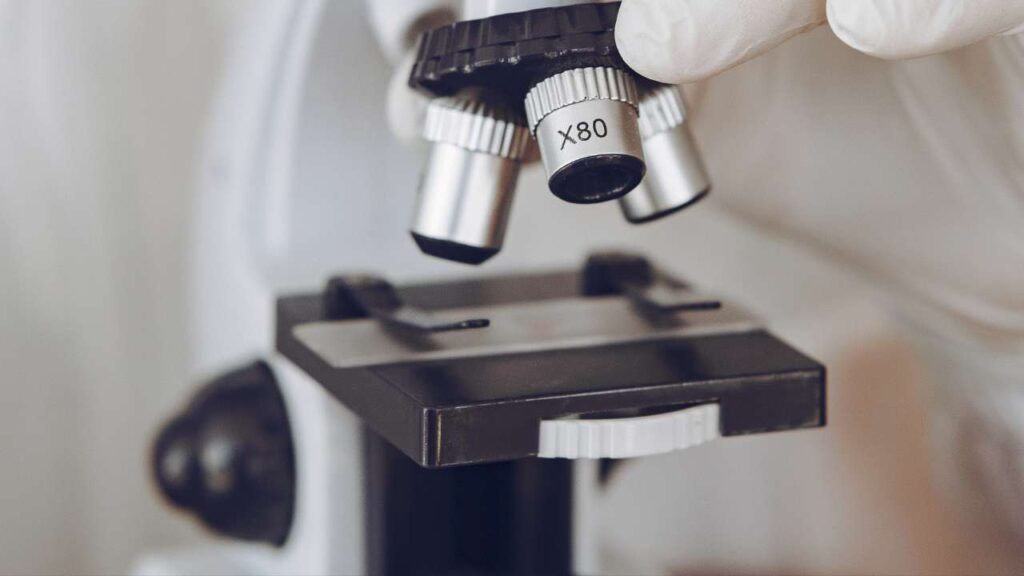
2. Navigating the Path: Overview of the BS Microbiology Program
Course Duration and Structure
A typical BS Microbiology program in Pakistan spans four years, divided into eight semesters. The curriculum is designed to provide a balance of theoretical knowledge and practical laboratory experience, guiding students towards successful and diverse professional futures within the industry.
Eligibility Criteria
Students who have completed their higher secondary education (F.Sc. pre-medical or equivalent) are generally eligible to apply for BS Microbiology programs. However, specific admission requirements may vary between universities.
Leading Institutions Offering Microbiology Degrees
Several reputable universities across Pakistan offer comprehensive BS Microbiology programs, including:
- University of Central Punjab (UCP)
- University of the Punjab
- University of Karachi
- Aga Khan University
- Quaid-i-Azam University
- COMSATS University Islamabad
- University of Veterinary and Animal Sciences (UVAS)
- Government College University (GCU) Lahore
These institutions provide quality education, research facilities, and opportunities for students to explore the diverse facets of microbiology.
3. Delving into the Curriculum: Subjects and Specializations
Core Subjects
The curriculum covers a wide range of subjects, providing a comprehensive understanding of microbial life:
- General Microbiology: Fundamentals of microbial life, encompassing structure, function, genetics, and diversity.
- Bacteriology: In-depth study of bacteria, their role in disease, and their applications in biotechnology.
- Virology: Exploration of viruses, their replication mechanisms, and their impact on human health.
- Mycology: Study of fungi, their diversity, and their significance in medicine, agriculture, and industry.
- Immunology: Understanding the immune system and its response to microbial infections.
- Molecular Biology: Exploring the molecular mechanisms underlying microbial life and genetics.
- Microbial Genetics: Study of genetic material, inheritance, and variations in microorganisms.
- Biochemistry: Understanding the chemical processes within and relating to living organisms.
Semester-Wise Breakdown
The curriculum is typically structured to provide a gradual progression of knowledge, starting with foundational courses and progressing to more specialized topics.
Elective Courses and Specializations
In later semesters, students often have the opportunity to specialize in areas like:
- Clinical Microbiology: Focuses on the diagnosis and treatment of infectious diseases.
- Industrial Microbiology: Explores the use of microorganisms in industrial processes.
- Environmental Microbiology: Studies the role of microorganisms in the environment.
- Pharmaceutical Microbiology: Deals with the quality control and production of pharmaceuticals.
4. A World of Opportunities: Scope of Microbiology in Pakistan
Growing Demand
The demand for skilled microbiologists is steadily increasing in Pakistan as the country develops and faces new challenges in healthcare, agriculture, and environmental sustainability.
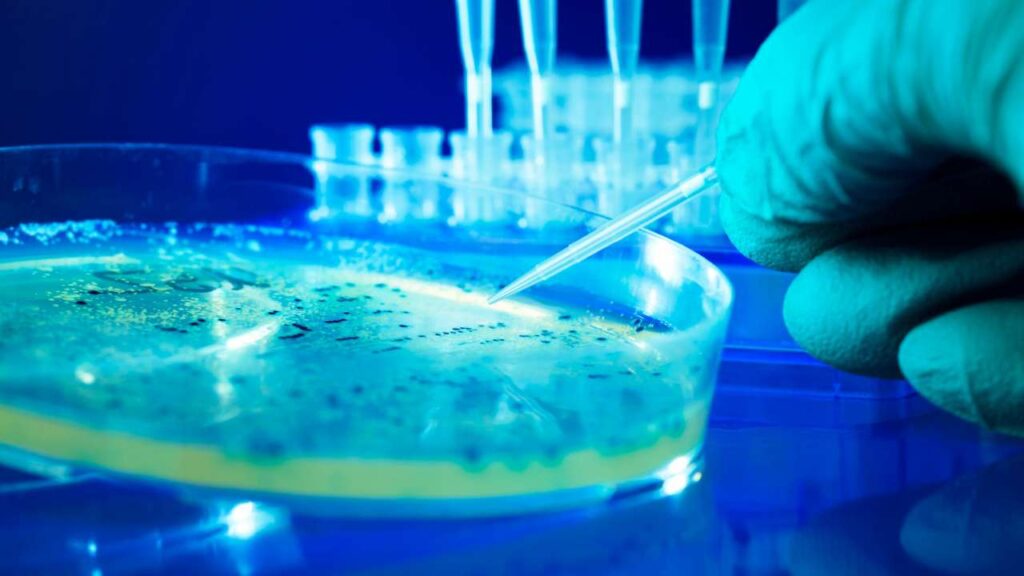
Industries Hiring Microbiology Graduates
Individuals with a microbiology degree can find employment in various sectors:
- Healthcare: Hospitals, diagnostic labs, and public health organizations.
- Pharmaceuticals: Research and development, quality control, and production of drugs and vaccines.
- Food and Beverage: Quality assurance, product development, and food safety.
- Agriculture: Research institutions, agricultural companies, and government agencies.
- Environment: Environmental protection agencies, consulting firms, and research organizations.
Future Prospects and Trends
Advancements in microbiology are opening up exciting new avenues in:
- Biotechnology: Developing new diagnostic tools, therapeutic agents, and industrial processes.
- Genetic Engineering: Modifying microorganisms for various applications.
- Public Health: Addressing emerging infectious diseases and antimicrobial resistance.
- Nanotechnology: Utilizing nanotechnology for developing novel antimicrobial agents.
5. Career Paths for Microbiology Professionals
Diverse Job Roles
A Microbiology degree opens doors to a variety of rewarding career paths:
- Microbiologist: Conducting research, analyzing samples, and developing new techniques in various settings.
- Research Scientist: Leading research projects in universities, government labs, or private companies.
- Quality Control Analyst: Ensuring the quality and safety of products in various industries.
- Laboratory Technician: Performing lab tests, analyzing samples, and maintaining equipment.
- Clinical Microbiologist: Diagnosing infectious diseases and advising on treatment options.
- Food Safety Officer: Ensuring food safety standards are met in production facilities.
- Environmental Consultant: Assessing and mitigating environmental risks related to microorganisms.
- Biotechnologist: Developing new products and processes using microorganisms.
Emerging Opportunities
With the rapid advancements in the field, new opportunities are constantly emerging for those with a background in microbiology:
- Bioinformatics Specialist: Analyzing biological data using computational tools.
- Science Communicator: Translating complex scientific findings for the public.
- Biotechnology Entrepreneur: Starting and managing companies that develop innovative bio-based products.
6. Salary Expectations and Growth Potential
Starting Salaries
The starting salary for a fresh graduate with a Microbiology degree in Pakistan can range from PKR 30,000 to PKR 50,000 per month. Nevertheless, it’s important to note that this can fluctuate depending on factors such as
- Experience: Entry-level positions generally offer lower salaries compared to those with experience.
- Skills: Graduates with specialized skills, such as molecular biology techniques or bioinformatics, may command higher salaries.
- Industry Type: Private sector jobs often offer higher salaries compared to government or academic positions.
- Location: Salaries may vary depending on the city and location of the job.
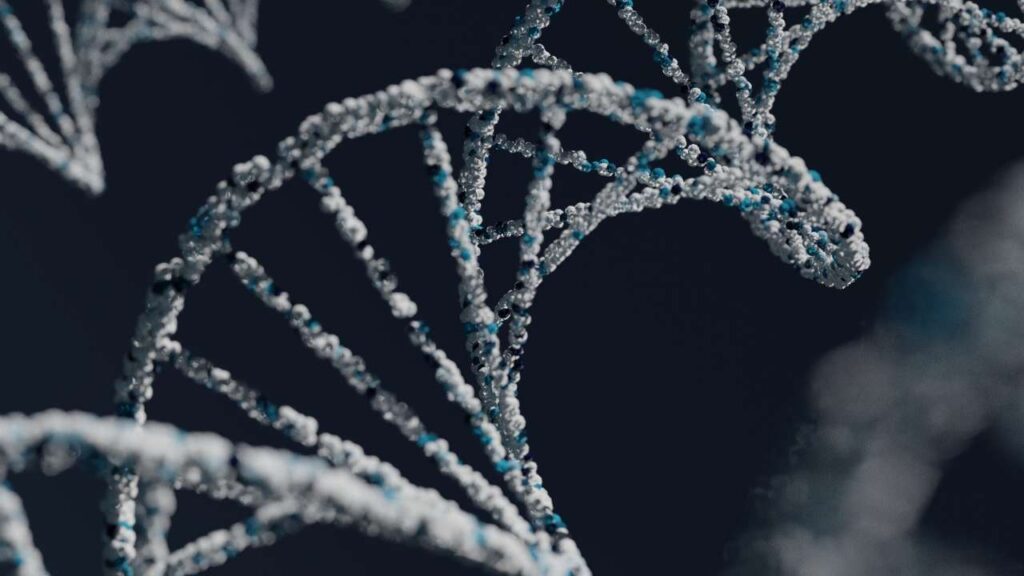
Factors Influencing Salary Growth
With experience, further education, and skill development, professionals in this field can significantly increase their earning potential. Certifications, publications, and contributions to research can also enhance career progression and salary growth.
7. Furthering Your Education: Advanced Studies and Specialization
Master’s Degree
Pursuing a Master’s degree in Microbiology allows for deeper specialization in areas like clinical microbiology, microbial genetics, or environmental microbiology, opening doors to more advanced career opportunities in research, teaching, or specialized roles.
Certifications and Diplomas
Several certifications and diplomas can enhance job prospects for those with a Microbiology degree. These include certifications in clinical microbiology, food safety, quality control, and specific laboratory techniques.
Doctoral Studies and Research
A Ph.D. in Microbiology is ideal for those passionate about research and academia. It involves in-depth research on a specific topic, culminating in a dissertation and potentially leading to a career as a research scientist, university professor, or industry leader.
8. Essential Skills for Success in Microbiology
Technical Skills
- Laboratory Techniques: Aseptic techniques, culturing microorganisms, staining, microscopy, and biochemical assays.
- Data Analysis: Analyzing and interpreting experimental data using statistical software and bioinformatics tools.
- Scientific Writing: Communicating research findings effectively through scientific papers and reports.
Soft Skills
- Critical Thinking: Analyzing information, evaluating evidence, and forming logical conclusions.
- Problem-Solving: Identifying problems, developing solutions, and implementing them effectively.
- Communication: Communicating scientific information clearly to both technical and non-technical audiences.
- Team-Oriented Approach: Proven success in fostering productive partnerships and driving collective achievements.
Gaining Practical Experience
Internships in hospitals, research labs, or industry settings provide valuable hands-on experience and enhance job prospects. Participating in workshops and training programs can also boost skills and knowledge.
9. MBBS After BS Microbiology: Exploring the Pathway
While a BS Microbiology provides a strong foundation in biological sciences, it doesn’t directly qualify individuals for admission to an MBBS (Bachelor of Medicine, Bachelor of Surgery) program in Pakistan.
MBBS programs typically require a higher secondary education with a pre-medical background (F.Sc. pre-medical). However, some universities may consider those with a Microbiology degree for admission if they meet specific criteria or complete bridging courses.
Pros and Cons of Pursuing MBBS After BS Microbiology
Pros
- Solid Foundation: A BS Microbiology provides a comprehensive understanding of microorganisms, which can be beneficial in medical studies, particularly in areas like pathology and infectious diseases.
- Alternative Career Path: If you decide not to pursue medicine after completing your BS, you still have a valuable degree with various career options in the field of microbiology.
Cons
- Additional Time and Effort: Meeting the eligibility criteria for MBBS admission may require additional time and effort, including taking extra courses or entrance exams.
- Competitive Admissions: MBBS programs are highly competitive, and admission is not guaranteed even with a strong academic record in microbiology.
10. Challenges and Considerations for Aspiring Microbiologists
Is Microbiology a Difficult Field of Study?
Microbiology can be a challenging field, requiring dedication, effective study habits, and a genuine interest in the subject. It involves extensive laboratory work, complex concepts, and a significant amount of research. However, with proper time management, a passion for the subject, and a willingness to learn, students can succeed in this rewarding field.
Job Market Competition
Competition for microbiologist roles, particularly at the entry level, can be fierce. However, graduates can increase their chances of securing desirable positions by:
- Gaining Practical Experience: Pursuing internships, volunteering in research labs, and participating in relevant workshops.
- Developing Specialized Skills: Acquiring expertise in specific areas like molecular biology techniques, bioinformatics, or clinical microbiology.
- Networking with Professionals: Attending conferences, joining professional organizations, and connecting with individuals in the field.
Overcoming Obstacles
To overcome challenges and succeed in microbiology, students can:
- Cultivate Strong Study Habits: Regularly review material, participate in study groups, and seek help from professors or tutors when needed.
- Stay Updated with Advancements: Keep abreast of the latest research and developments in microbiology by reading scientific journals and attending seminars.
- Develop Strong Communication Skills: Effectively communicate scientific information to both technical and non-technical audiences.
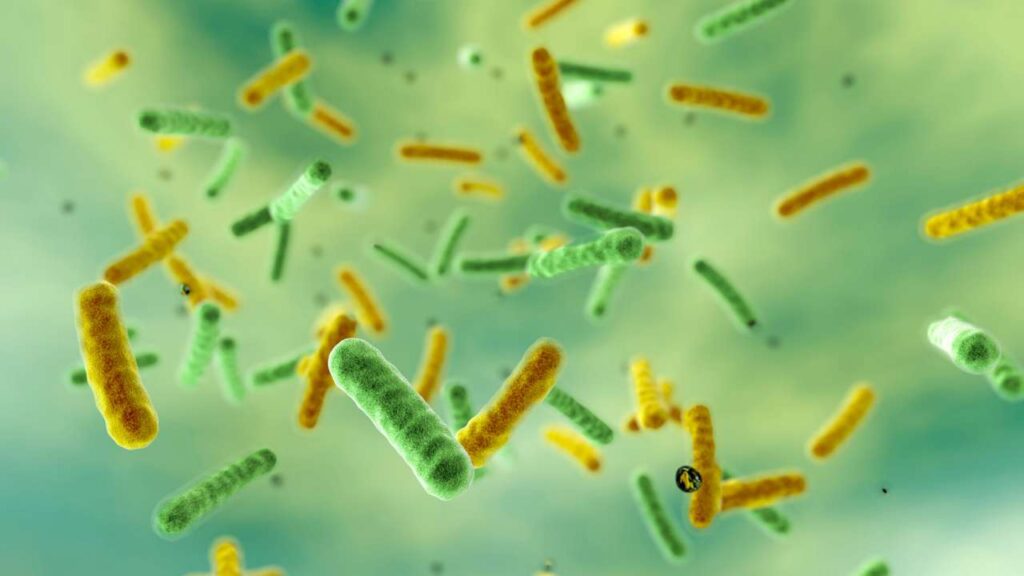
11. Embracing the Microscopic World: Why Choose BS Microbiology?
A BS Microbiology in Pakistan offers a rewarding career path with diverse opportunities to contribute to society. The field is constantly evolving, with new challenges and discoveries shaping the future.
By pursuing microbiology, you can be part of a dynamic field that addresses critical issues in health, agriculture, the environment, and industry. With dedication, hard work, and a passion for the microscopic world, you can unlock a world of opportunities and make a positive impact.
I hope you like this information, feel free to ask us more questions in the comment box below. You can also read our article on MLT scope in Pakistan.
Frequently Asked Questions (FAQs)
-
What is the difference between BS and BSc Microbiology?
In Pakistan, both BS and BSc Microbiology degrees are generally equivalent. The curriculum and career prospects are largely the same.
-
Can a microbiologist be called a doctor?
While a BS Microbiology graduate is not a medical doctor (MD), they can be addressed as “Doctor” if they hold a Ph.D. in Microbiology.
-
What is the future of microbiology in Pakistan?
The future of microbiology in Pakistan is promising, with growing demand in healthcare, research, industry, and environmental management. Advancements in biotechnology, genetic engineering, and nanotechnology are creating exciting new opportunities.
-
How is BS Microbiology different from BS Biology?
BS Microbiology is a specialized branch of biology that focuses specifically on microorganisms. BS Biology covers a broader range of biological sciences, including zoology, botany, and genetics.
